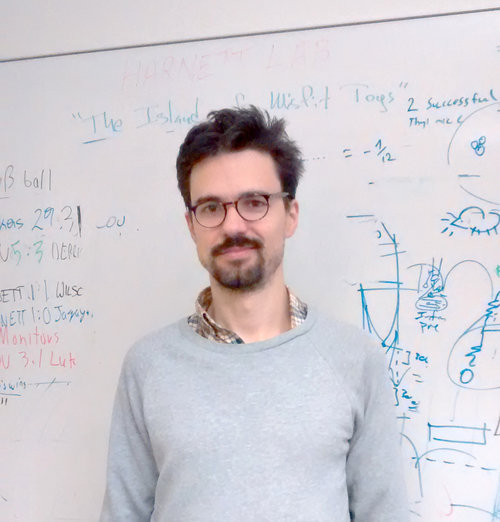
SCSB Lunch Series: Representation of spatial hypotheses in mouse retrosplenial cortex
Description
Date: Friday, November 13, 2020
Time: 12:00pm – 1:00pm
Location: Zoom Webinar – Registration Required
Register in advance for this webinar: click here
* After registering, you will receive a confirmation email containing information on how to join the webinar.
Speaker: Jakob Voigts, Ph.D.
Affiliation: Postdoctoral Fellow, Mark Harnett Laboratory, McGovern Institute for Brain Research, Department of Brain and Cognitive Sciences, MIT
Talk title: Representation of spatial hypotheses in mouse retrosplenial cortex
Abstract: Navigation requires associating different streams of information, and interpreting sensory information in the context of existing knowledge about one's position. For example when giving directions, saying 'the red building' might be ambiguous, but saying 'the second red building after the gas station' would work. Here we recorded in mouse retrosplenial cortex, thought to be a central hub for carrying out such associations during navigation, in a task in which landmarks are only useful if considered in their spatial context. We then examined how the mouse having only partial knowledge about its position is reflected by neurons in this brain region, and how sensory inputs can take on different meanings depending on prior sensory inputs and on knowledge of the environment. Our findings provide insights into how mice navigate with unreliable or ambiguous cues, and provide a starting point for studying context dependent cortical computations by using navigation as a model system.

